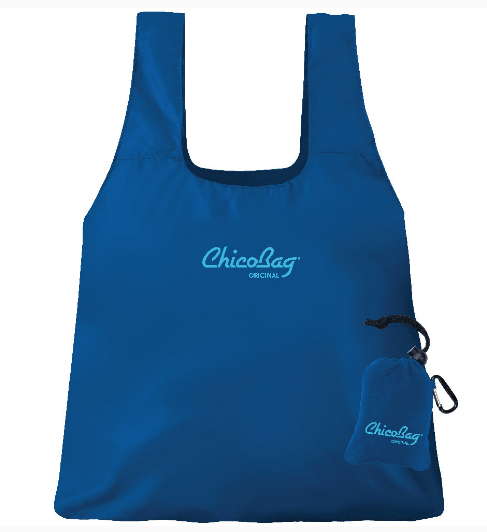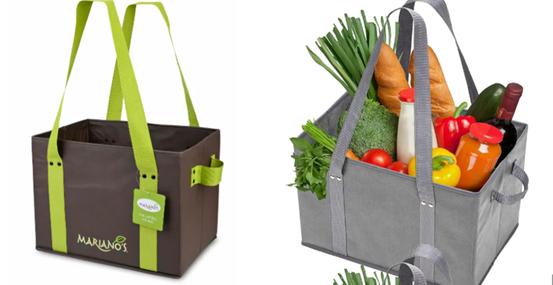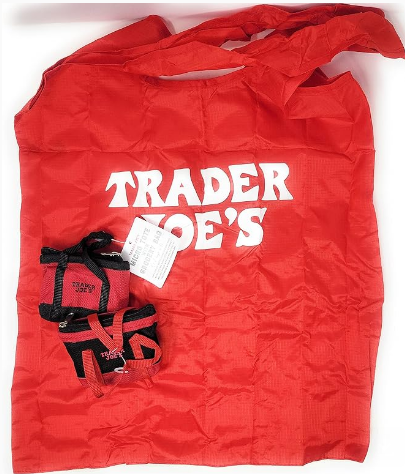Green Resolution 2: Quit Plastic Bags!
by Jac
Did you read last week’s log about quitting single-use plastic water bottles? How did you do? Since we put out that piece, two additional news stories highlighted how plastic is potentially harmful to our health: A study released last week estimated that the endocrine disrupting chemicals in plastic costs the U.S. $250B a year in increased health costs. Also concerning was another recently announced study that examined protein including beef, chicken, fish, and plant-based alternatives, and found microplastics in 88% of them.
We encourage you to read the studies for yourself. They illustrate why plastic is bigger than a litter problem, but we know it is also very hard to avoid.
That’s why we are focusing on reducing our use of two of the most prevalent plastics in our lives! This week we are going to talk about why you should ditch single use plastic bags for 2024!
Together we can learn, do, and participate in everyday environmental actions that make our community more healthy, more beautiful, and more environmentally friendly for all!
What's the problem with single use plastic bags?
There are some pretty bleak stats on plastic bags. The average plastic bag is used for only 12 minutes before it is thrown away. On average 5,000,000,000,000 - yes that is FIVE TRILLION - plastic bags are produced every year. Americans use an average 365 plastic bags every year (the average person in Denmark only uses four every year. Maybe that’s part of the reason they are typically known as one of the world’s happiest countries!).
Watch this 2 minute video that talks about the history of the plastic bag and its environmental impact, as well as the impact of bag alternatives. The best bag is one you REUSE!
For years, we have been told that we can recycle plastic bags. However, a report by ABC news in 2023 found that although plastic bags are accepted for recycling at many retailers, evidence indicated that in practice, they are rarely recycled (if at all). Major retailers Target and Walmart have stopped accepting plastic bags for recycling since that story. In fact, the plastic film recycling directory was taken offline at the end of 2023, because the website owner said "Continuing to offer a resource without real commitment from the industry and seeing how many organizations were willing to backfill without any integrity of how they are going to maintain data, I just couldn't be a part of it anymore," Nina Bellucci Butler, CEO of Stina Inc., which manages the directory, told ABC News.
All of this has us feeling like a plastic bag waving like a sad flag from a tree branch (we know you’ve seen these). Believe it or not, plastic bags were actually invented to HELP the environment! Prior to their widespread use, people used paper bags at the store. Plastic bags were stronger, less prone to ripping and could withstand moisture, and didn’t require cutting down trees to make. The prevalence first spread in Europe. U.S. grocery stores only began using plastic bags in 1982.
The problem, as with many plastic items, is not the fact that we use plastic bags, but the fact that we use them and then immediately throw them away. Raoul Thulin, son of plastic bag inventor Sten Thulin, said: “To my dad, the idea that people would simply throw these away would be bizarre…He always carried [a plastic bag] in his pocket folded up. You know what we’re all being encouraged to do today, which is to take your bags back to the shop, he was doing back in the Seventies and Eighties, just naturally, because, well, why wouldn’t you?”
Do you ever feel like a plastic bag, drifting through the wind, wanting to start again? (thanks, Katy Perry, for that inspiration). Well good news - 2024 is your chance to do exactly that when you start bringing your own bag!
As the video highlights, plastic bags do have some useful properties because they are strong, lightweight, and easy to produce. So when you get plastic bags like we inevitably do, reuse them! Our "Do" section has ideas for REUSING and/or switching to non-plastic bags. When you make the switch to reusable bags, we like ones that are washable, compact/foldable, and light. You probably have a bunch of reusable bags at home that you've received for free. If you aren't using them, then, if financially feasible, we recommend investing in some new bags you really like and will be motivated to use and REUSE again and again.
DO: At the store
This is a fantastic place to start reducing your plastic bag consumption. It’s easy and makes a big difference. Simply put 3-4 reusable bags in your car and bring them into the store whenever you go shopping. You probably have several reusable bags that you could use but if you don’t, and you need to buy some, Marianos has, by far, the best option, in the humble opinion of Go Green. It is a collapsible tote and extremely durable. They can hold a LOT of groceries. You can also find this type of collapsible tote on Amazon. Make sure to get side handles as they are very helpful when the tote is heavy.
Once you have your bags, make sure to put smaller bags inside them as well which can be used for produce. You can also use any sort of smaller bag (including old plastic or produce bags) for this purpose. No need to use yet another plastic bag to put your apples in. You can buy reusable produce bags - but try to avoid buying ones made of polyester, which is another word for plastic! Bags made from natural materials like cotton are better for you and your fruits and veggies.
In your purse…We always keep a few foldable chico bags in our purses as well. (PS. These make great gifts!) You can order them online and Moveable Feast in Wheaton sells their own version as well. These types of teeny tiny fold up bags come in handy so often and take up such little space. If you are at the store and they ask if you want a bag for your purchase, say “Nope - brought my own!” You are saving the store a few cents on the bag, as well as the environment. We guarantee the person ringing you up will smile. Trader Joe’s has a really cute one right now as well.
In your lunch…
Another place where you can swap plastic bags (aka ZipLoc) for something more sustainable is in your lunch. Some of our favorite swaps for ZipLocs are Stasher Bags, Bruntmor containers, Bentgo glass salad containers, and mini mason jars. Pretty much any reusable aluminum, glass or silicone container will be healthier for your body and the environment. Keep in mind that Ziploc bags do not biodegrade. They are an environmental hazard to land and aquatic life.
Storage…
We have found that having a variety of zipper top bags can be a great replacement for gallon size ZipLoc bags. They can be used over and over again for toiletries, travel, school supplies, pool toys, sunscreen, bug spray, make-up, etc.
The hardest part of using reusable bags is...remembering them! This is why we recommend having several in several places, so you are never without one. Visual reminders can be helpful - hang them by your car keys or store them by your shoes, so you will take them when you leave the house.




